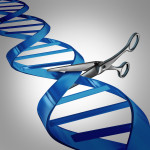While they may not develop wrinkles or liver spots, CD4 cells can show signs of premature aging. This can lead to faster disease progression in HIV-positive people, conclude the authors of a study published in the January 7 issue of the Journal of Acquired Immune Deficiency Syndromes.
Scientists have known for many years that the immune systems of elderly people are not as robust as those of younger people. One of the primary reasons for this is that as a person’s CD4 cells reproduce over many years, they slowly become less functional with each generation. Experts in genetic research call this immunosenescence.
Immunosenescence can occur much more rapidly in people with HIV, given the constant destruction and production of immune cells in response to the virus. What has remained unknown, however, is whether this premature aging of CD4 cells impacts HIV disease progression.
To explore the possibility, Weiwei Cao, MD, PhD, from the Department of Medicine at Danbury Hospital in Connecticut and his colleagues examined the CD4 cell functioning of 20 HIV-positive people with rapid disease progression and 40 people with slow progression. The study volunteers were all drawn from the Multicenter AIDS Cohort Study (MACS), and a rapid progressor was defined as progression to an AIDS diagnosis within four years of infection.
Cao’s team found that one of the fundamental signs of an “aging” cell—the loss of cell receptors called CD28—was far more likely to be present in rapid-progressors than slow progressors. Other signs of premature CD4 cell aging, such as the ratio of two types of CD4 cells, called memory and naïve cells, were less clear.
While the authors state that the cellular aging process can continue even in people on antiretroviral (ARV) therapy, they recommend that more research be conducted to determine whether—and to what degree—ARV therapy helps slow this process. They also call for studies exploring the removal of aging cells to make room for new cells, and for a therapy that may rejuvenate aging cells.
Advertisement
Advertisement
Advertisement






Comments
Comments